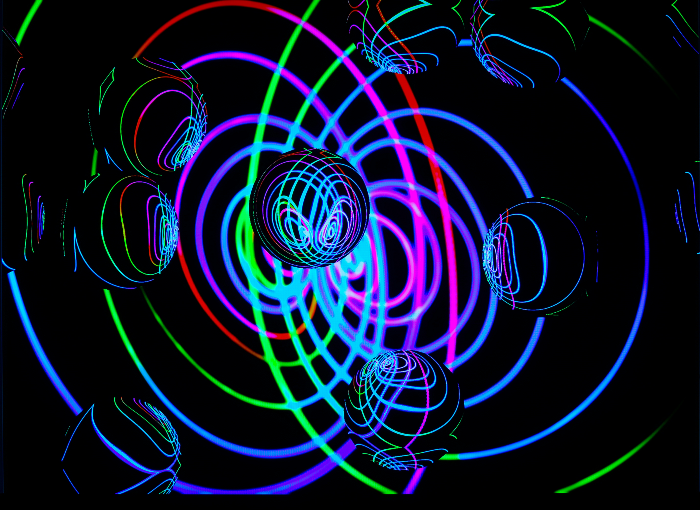2025 Nobel Prize in Physics Awarded to Trio of Scientists for Work on Quantum Computing

The Royal Swedish Academy of Sciences awarded the 2025 Nobel Prize in Physics to quantum physicists John Clarke, Michel H. Devoret and John M. Martinis “for the discovery of macroscopic quantum mechanical tunnelling and energy quantisation in an electric circuit.”
Quantum mechanics is the study of the behaviour of matter and light on the atomic and subatomic scales. This field of physics is behind some of today’s most transformative technologies, including supercomputers and smartphones. Through a series of groundbreaking experiments in the mid-1980s using electrical circuits, the laureates observed quantum mechanical phenomena called quantum tunnelling and quantization of energy levels. The trio proved the existence of these quantum phenomena on a system visible to the human eye.
Quantum tunnelling occurs when a particle moves directly through an otherwise impassable barrier to appear on the other side, even if it lacks sufficient energy to do so. Quantization of energy refers to a property of subatomic particles, whereby they can gain or lose energy only in fixed, discrete amounts. While the quantum tunnelling effect diminishes as particles assemble, the laureates’ work demonstrated that quantum tunnelling can occur in a macroscopic system that is visible to the eye, larger than previously thought possible. Their work also showed that the energy of this system is quantized. These discoveries indicate that quantum mechanics can influence everyday objects under certain conditions.
The laureates’ work became the basis for the development of quantum technology, including quantum computers used by technology companies like Google and IBM. Quantum computers rely on the principles of quantum mechanics to make complex calculations, predict outcomes and perform analyses that may be out of reach for a traditional computer.
Clarke conducted his research at the University of California-Berkeley, using this technology to build equipment for the Axion Dark Matter eXperiment to help detect dark matter. Martinis was a researcher at the University of California-Santa Barbara, though he later worked at the Google Quantum A.I. lab from 2014-2020 and cofounded quantum computing company Qolab in 2022. Devoret, who conducted his research at Yale University and the University of California-Santa Barbara, is currently the Chief Scientist at Google’s Quantum A.I. lab.
The Nobel Prize includes a prize of 11 million Swedish crowns ($1.5 million Canadian dollars) to be shared among the three laureates. The prize will be presented on December 10, 2025, at a ceremony in Stockholm, Sweden.
Author: Helen Wu, 2025-2026 Articling Student-At-Law
Photo Credit: https://unsplash.com/@flyd2069
Expertise
Insights
-
Technology
Compute Is the New Currency: OpenAI Signs US$38B Cloud Pact with AWS
OpenAI has signed a seven-year, US$38 billion cloud agreement with Amazon Web Services (“AWS”), gaining access to hundreds of thousands of Nvidia GPUs to train and run future models. This shift comes… -
Technology
Apple and Nvidia reach historical milestones, dominate the stock market
In late October, Apple Inc. (“Apple”) became only the third company in history to reach a market capitalization of US$4 trillion, joining Nvidia Corporation (“Nvidia”) and Microsoft Corporation, which… -
Technology
ABK Biomedical Secures US$35 Million Series D Financing to Advance Liver Cancer Treatment
Halifax-based medical device company ABK Biomedical, Inc. (“ABK Biomedical”) has raised US$35M in Series D financing to support the commercialization of its innovative liver cancer treatment.Founded… -
Technology
Tech Blog – 1Password Locks in AI Security with Browserbase and US$100M Secondary Sale
In early October, Toronto-based 1Password, a platform that helps individuals and businesses securely manage digital identities, announced a new partnership and completed a major secondary sale… -
Technology
Rebuilding the Pre-Construction Process: Provision’s AI Co-Pilot Is Changing How Projects Are Estimated
Provision Software Corporation (“Provision”), a Toronto-based AI technology company, is developing tools that empower pre-construction professionals to work more efficiently and profitably… -
Technology
Cybrid raises US$10 million to scale stablecoin payment infrastructure
Cybrid Technology Inc. (“Cybrid”), a Toronto-based fintech startup, has secured a US$10-million Series A funding round to help financial institutions and companies integrate its stablecoin payment…
